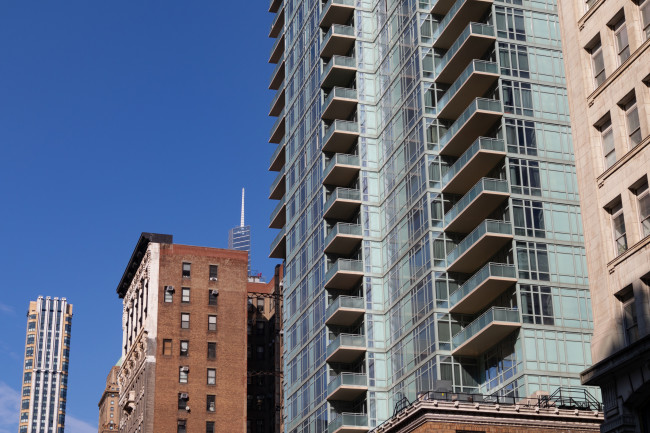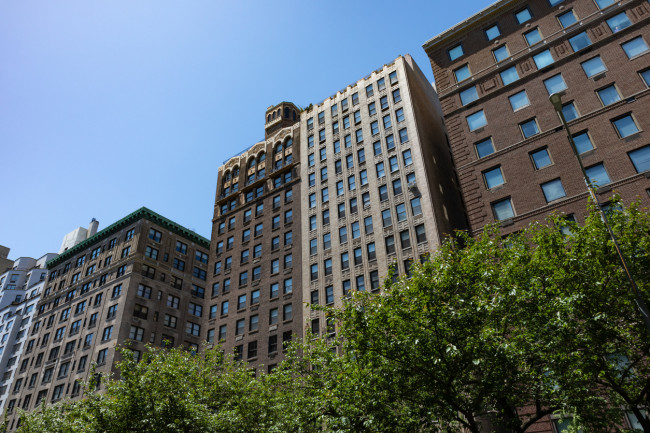What do first-time buyers need to know about co-ops?

First-time NYC co-op buyers need to understand that every co-op building is different and comes with its own rules about financing, renovations, subletting, and more, say attorney James Woods of Woods Lonergan.
iStock
I’m thinking about buying a co-op apartment. What should I keep in mind as a first-time co-op buyer?
“When my office works with someone buying a co-op for the first time, our goal is to avoid unwelcome surprises—either as part of the purchasing process or once they have settled in,” says James Woods, Esq., managing partner at Woods Lonergan PLLC, a Manhattan-based law firm that concentrates on real estate and in particular, buyers, sellers, and cooperative representation.
“Even if you have owned other types of housing in the city or elsewhere, you still need to wrap your head around how this particular co-op operates and figure out whether it is right for you,” Woods says. “Each NYC co-op comes with a culture of its own that’s accompanied by a number of rules and restrictions.”
Here are six things to keep in mind about co-ops before you get into a contract to buy one.
1. Co-op boards may reject a buyer without giving a reason
“One of the toughest things for new buyers in the co-op purchasing process to get their brains around is the fact that a co-op board may reject your application and they don’t need to tell you their reasoning,” Woods says.
Boards are given a great deal of deference in their decision making; the courts typically do not want to get involved with the governance of private companies. Even when challenged, with the limited exception of discriminatory conduct, a board’s business judgment will usually be upheld by the court.
2. Co-ops have strict financial requirements for down payments, income, and liquidity
“Another unique challenge with co-ops, unlike other purchases, is that boards can set strict financial requirements for living in a NYC co-op,” says Lauren Tobin, Esq., a real estate attorney at Woods Lonergan who specializes in the representation of buyers, sellers, and cooperative corporations.
These requirements may include demanding a purchaser’s down payment of 20 to 25 percent (or much more) of the purchase price, debt-to-income levels of 25 to 33 percent, and post-closing liquidity (some require a year’s worth of mortgage and maintenance in an escrow account, or more). The financial demands serve to winnow candidates, so many rejections occur before a meeting with a co-op board is ever scheduled.
3. Co-op can charge a flip tax (or transfer fee)
“You also need to consider how much the building charges as a flip tax (or transfer fee),” Tobin says. Even though it is the seller who is paying for it, the shoe will be on the other foot when you go to sell. “There’s no getting around it,” she says.
“Co-ops have various ways of implementing a flip tax. It can be a flat fee, based on the number of shares you own, a percentage of the sale price, or the difference between what you paid for it and what you sold it for,” Tobin says.
Typically flip fees range from 1 to 5 percent of gross sales price, with 2 or 3 percent as the most common. However, there are some co-ops in NYC with flip taxes in excess of 20 percent! This is definitely something you will want to be mindful of when purchasing a co-op. The steeper the flip tax, the more it will affect the amount you walk away with when you sell.
Bear in mind that the flip tax is dictated by the co-op’s bylaws, and changing the amount may require a shareholder vote, although some boards do have the power to amend the bylaws. You will want your lawyer to check the co-op’s bylaws to advise you further on this point.
The real estate attorneys at Woods Lonergan have decades of experience successfully representing buyers and sellers in every type of transaction. "We mobilize quickly to guide you through every aspect of your purchase or sale, from home inspection to contract negotiations and closing," says managing partner James Woods. To learn more about Woods Lonergan or schedule a free 15 minute consultation, click here or call 212-684-2500.
4. Co-ops can dictate terms on subleasing apartments
The rules for subletting in co-ops vary from building to building. “In general, co-ops are known for relatively strict policies about subleasing and some buildings completely forbid subletting of apartments,” Woods says. Many times these rules are intended to scrutinize the occupants of the buildings and may be designed to foster a high proportion of owner-occupied apartments.
Many co-ops have limitations on the number of years owners can sublet their apartments; perhaps no more than two years in a row or no more than five out of seven years. This is designed to prevent people from using their apartment purely for rental investment purposes. In addition, a prospective renter will likely need to be approved by the board and you can be charged a fee for subletting.
The pandemic made rules about subletting particularly onerous for co-op owners who wanted to get out of the city and recoup some funds for their vacant apartments. When the sales market stalled, anecdotally, some co-ops relaxed their subletting policy in an effort to entice buyers—but with the city’s now robust sales market, expect a return to tighter subletting policies, which also serve to prevent short-term stays via Airbnb and similar sites.
Especially if you plan to have another person live in your co-op unit or use it as an investment property, you will need your lawyer to diligently check the governing documents for restrictions as well as the board minutes for any proposed changes regarding the sublease policy.
5. Co-ops can restrict your ability to do renovations
When it comes to renovations, co-ops have lots of rules, primarily because they need to protect the quality of life of shareholders in the building.
Some rules limit the number of renovations. For example, some buildings will only allow one renovation at a time or no more than two or three at a time. You may find co-ops that only permit renovations during the summer—when many residents are out of town. In addition, many buildings restrict the days of the week and times that renovations can take place. Wet-over-dry rules may prevent you from putting in the laundry room of your dreams, even though a neighbor has one with the exact same layout as yours—theirs was grandfathered in.
Understand that a building “can flat out reject your plans,” Tobin says. “A lot of people will walk into a building and get a vision of what they want. You need to make sure it’s feasible.”
To find out what is and isn’t allowed, and what procedures a building utilizes for renovations, you need to investigate whether there is a uniform alteration agreement. This is a contract that you sign when you want to undertake renovations that spells out the building’s rules.
Woods says it’s a good idea to familiarize yourself with the alteration agreement in advance. This way, you’ll understand the timelines for providing documents and completing work, the insurance requirements, service fees and payments to the board, and lien waivers.
“Definitely request it if it is not provided,” he says. “You will want to make sure your vision for the apartment can be accomplished before you get into a contract to buy it.”
6. Co-ops can levy assessments to pay for capital improvements and compliance with Local Laws and the Climate Mobilization Act
New York City’s strict building codes are updated with the creation of Local Laws, which address, for example, façade inspections, fire safety, energy efficiency, and more.
“Many of the buildings we deal with grapple with coming into compliance with New York City’s local laws,” Woods says. Doing so may require engaging a professional engineering firm for imposing an assessment for doing a physical upgrade.
Local Law 11, which mandates facade inspections at five-year intervals for buildings taller than six stories, is particularly expensive. A new challenge buildings are grappling with are the requirements of the Climate Mobilization Act.
“These are big-ticket items,” Woods says. “These costs can be prohibitive, which can certainly have a profound effect on a co-op’s budget.”
That’s why you need to know the status of work that’s been completed and work that is expected in the future. “As part of due diligence, your lawyer needs to review the building’s financials and board meeting minutes as well as the building’s capital improvements plan,” Tobin says.
“Your lawyer can keep an eye out to make sure a building is capable of handling capital improvements and will not get caught flat footed,” she says. “Some capital improvements will result in an assessment or maintenance increase.”
James Woods is a partner at Woods Lonergan PLLC, and Lauren K. Tobin is an associate with the firm. Woods Lonergan PLLC represents New York City buyers, sellers, cooperative corporations, landlords, tenants, contractors, developers, and management companies. To submit a question for this column, click here. For a free, 15 minute legal consultation, call 212-684-2500 or send an email.


























